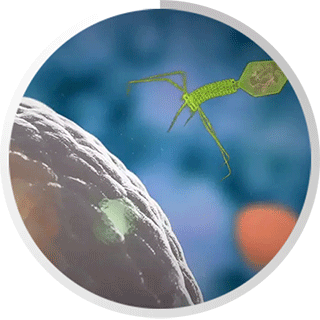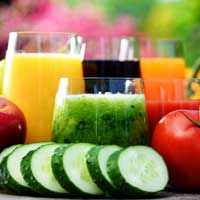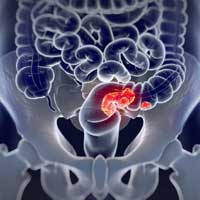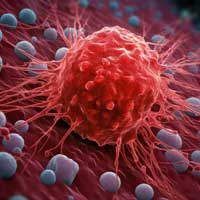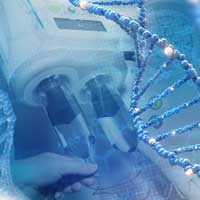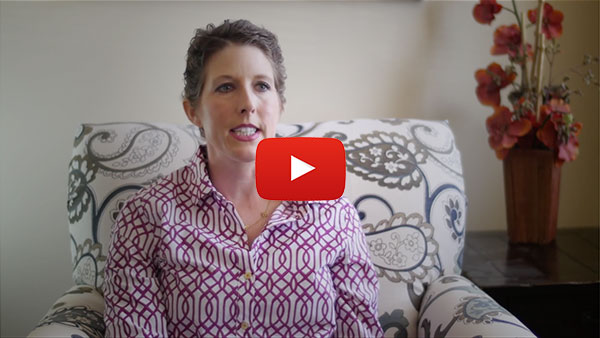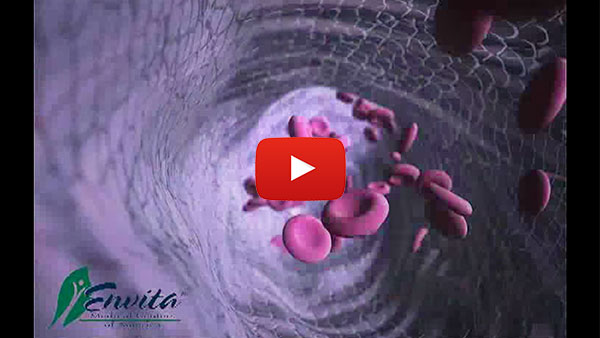Smart Foods that Impact Your Fight With Chronic Disease and Cancer
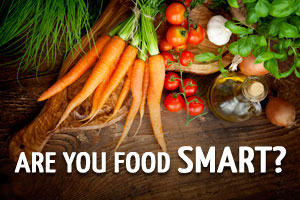
Dieting is one of the most important keys to recovering from chronic disease and cancer. You see, even a relatively healthy person that falls ill needs to facilitate their body, as their immune system is incredibly taxing on the body's need for nutrients. This is especially important for patients of chronic Lyme disease complex and its coinfections, as well as patient dealing with chemotherapy and radiation. Their bodies have been heavily taxed and need massive nutritional support.
"Let food be your medicine and your medicine your food." Hippocrates
Creating the Right Dietary Habits
Let's look at a couple of the most important foods for building a healthy immune system and restoring the body to optimal health, using Dr. Dino Prato's popular book The Stupid Diet.
The other issue is the end goal – are you dieting to lose weight or to become healthy? The two aren't mutually exclusive, sure, but with most diets you can see some quick progress in losing weight, then things will plateau and you'll see no changes in weight for weeks. It's easy to get discouraged or even worse, feel relaxed enough to "reward" yourself with junk food, thus returning to your old lifestyle.
Most dieting also makes you tired and hungry because they aim for incredibly low calorie counts rather than healthier options. While low caloric intake can give you results much faster than a healthy diet, this isn't the right way to approach this problem in relation to chronic diseases and cancer. We need to start asking if what we are eating is promoting healing and life or taking it away. This is the correct motivation behind nutritional life changes.
So What Do You Do?
Start by aiming for healthy eating rather than just trying to shed that extra flab. After all, skinny, "healthy" people get cancer and chronic diseases, too. It comes down to your choices in food and it's as simple as knowing what foods to avoid and what foods to take in.
The USDA used to advocate their food pyramid, but it was considered outdated and unhelpful. For example, the pyramid encouraged two-three protein servings per day as a maximum but encouraged two to four fruit servings as a minimum. See the confusion?
Now there's the more helpful MyPlate guide, which evenly splits fruits and vegetables between dairy, protein and grains. But it's really more complicated than that, because there are good grains and bad grains, good proteins and bad proteins, etc. (Depending on who you're following, there are the options of no meat or no grains.) So, let's make you food smart so you can start to navigate your path to health.
What you really want to aim for is food that are high in quality, such as organic, natural foods and foods that induce decreases in inflammation and improve energy. Once you start to learn what truly makes up the foods you put inside yourself, you can make it a habit to eat healthy. Best of all, it's really not that difficult to learn. You can stop following fad diets and start making smart changes with a diet so simple, it's stupid.
Six Guiding Principles to Being Food Smart
As The Stupid Diet suggests, there are six guiding principles for identifying high-quality foods. The first is Organic and Grass-Fed Foods, which means any food free of synthetic pesticides, fertilizers, herbicides or fungicides; genetically modified organisms (GMOs) such as seeds or ingredients; sewage; antibiotics or added growth hormones; animal byproducts and other undesirable substances in animal feed.
Organic fruits and vegetable juices will help combat the side effects of chemotherapy. There are over 2,000 papers cited worldwide on the benefits of antioxidants to patients during and after treatment (regardless of what conventional oncology states). Learn about the power of live (i.e. not concentrated or synthetic) foods and juices.
Furthermore, organic standards require that the animals are treated humanely, in pastures instead of warehouses, so that their living standards accentuate their health and natural behavior.
The second principle is food that is hypoallergenic, meaning it is unlikely to cause an allergic reaction. Most people are aware of what happens when folks with food allergies eat their version of Kryptonite, such as peanut butter – the throat swells up or they get hives.
However, it is estimated that 75% of Americans actually have food sensitivities to various degrees. These types of food reactions are harder to detect, because of their subtlety, delays and they produce symptoms that appear unconnected to a food reaction, such as headaches, acne, fatigue, digestive pain, chronic infections, depression, mood swings, joint pain and much more.
These sensitivities are generally caused by allergens and are further complicated by chemical toxins, additives, genetically modified organisms and whatever other junk is put into our food.
As you may know, your body has a certain pH level that it needs to maintain to remain functional. A more alkaline environment (meaning the opposite of acidic) is ideal, as this is better for cellular communication and function, the transport of oxygen and nutrients. In contrast, an acidic environment is the exact opposite, making it very hard for cells to do their job. If you want to prevent disease, you want to keep your physical constitution as alkaline as possible. Increasing intake of organic vegetables, fruits loaded with live enzymes and high-quality water can help.
You also need to balance your glycemic index, or the rate at which your blood sugar levels rise after eating certain foods. After eating, glucose, the sugar from the food, is released in the bloodstream. Then, insulin, a hormone produced by the pancreas, transports the glucose through the bloodstream and to cells, thus regulating blood sugar levels. Our cells use the glucose as fuel, for growth and recovery.
Cancer cell grow faster in sugar and high fructose corn syrup. Cancer cells are anaerobic, using glucose and fermentation as an energy source. Candida and fungal infections also feed on sugars. (Most cancer patients also have fungal infections as the disease progresses for some of the same metabolic reasons.)
So the glycemic index evaluates the rate food releases glucose into the bloodstream. A faster release is given a higher value and a food that has a slower release has a lower value. Now, foods with a high GI cause rapid fluctuations in blood sugar levels, which, over time, screw up the insulin receptors on the cell membranes, making them less responsive or even resistant to insulin. When this occurs, it's known as Type 2 Diabetes. Over 80% of people of people with this condition are obese or overweight and excessive fat cells exacerbate the problem, increasing insulin-resistance.
On the other hand, low GI foods can actually reduce insulin levels and insulin resistance, helping to control appetite and delay hunger. Disruption in insulin levels has been shown to affect everything from cardiovascular disease to immunity problems and research shows that risk from heart disease or Type 2 Diabetes is strongly related to the GI of your overall diet.
If you follow The Stupid Diet, you will eat combinations of foods that help slow the absorption of glucose and sustain those levels over a longer period, preventing extreme hunger or lack of energy (like many side-effects from fad diets). Balancing your GI is essential to long-term health and prevention of disease.
It is also very important to support your immune system with immune-supportive foods. After all, your immune system is your first and last defense against destructive elements in the body. This type of intake falls back on earlier points, such as avoiding allergenic foods, balancing alkalinity, etc. As you can see, it's all interconnected.
A clean, efficient and strengthened immune system that isn't weighed down with attacking allergens, toxins or inflammation is free to wage war on things like infection and cell mutations. As you may know, even the smallest of infections can lead to worse conditions, such as cancer. For example, human papillomavirus can lead to cervical cancer and hepatitis C can lead to liver cancer. Not to mention, it's estimated the average immune system terminates cell mutations and their development into cancer cells over 10,000 times per day.
It goes without saying your immune system requires everything it needs to function at its best. Eating high-quality, nutrient-rich foods is the primary way to give your body a chance of overcoming and preventing disease.
Last but not least, there's detoxification. Avoiding exposure to toxins in our industrial world is nearly impossible, unless you lived in a magic bubble. Therefore, it's important to eat foods that flush toxins from the body, so toxins don't build up. Yes, the body detoxifies itself naturally, but given the ever-increasing amount of toxins in our everyday environments, it's important to really make sure this function runs at full capacity. Some antioxidants like glutathione help clean the liver and neutralize the effects of harmful medications for patients dealing with chronic disease and cancer, making it an important part of cancer nutrition.
Detoxification is key when fighting infections, because dead bacteria (such as Lyme disease) can release harmful neurotoxins. If you're trying to recover, it makes no sense to get further sick by the byproducts of the war waging inside you. Detox is also key when losing weight because toxins can remain stored in fat tissue. As that weight is shed, years of accumulated toxins are released into the bloodstream.
Certain foods that promote healthy urination, bowel movements and support live function are the best detoxifiers, as these are the primary elimination points within the body.
Hopefully, explaining these dietary habits will help you understand how dieting really works and that it's important to aim for more than shedding pounds, but an overall healthy body, like a well-oiled machine. Learning these habits may be difficult at first, but over time, as you develop healthy dietary routines, you will begin to reap the benefits of your hard work and begin to live a new life that is healthy, energized and strong. Whether used as prevention or as an adjunct to treatment, getting the food right will help you. Keep it simple and once you learn these principals, you can create many wonderful recipes for yourself and your family.
The best part about these treatments is they are helpful for most, if not all cancers. If you have questions about your specific cancer or if you have any questions about chronic disease treatment, chronic Lyme disease complex treatment, integrative cancer treatment, recovering the strength of your immune system or other questions, feel free to contact us today.


